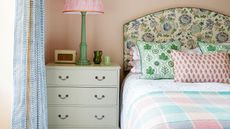9 ways to make your home smell nice
Make your home smell nice from the moment you step through the door with these expert tips
- (opens in new tab)
- (opens in new tab)
- (opens in new tab)
- Sign up to our newsletter Newsletter
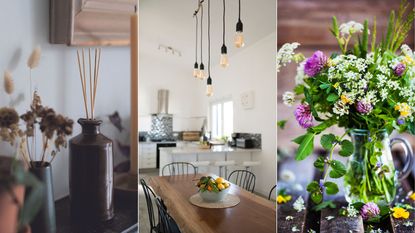

Learning how to make your home smell nice is essential in providing guests with a warm welcome and making your home a pleasant space in which to spend time. Sense of smell is one of the most evocative senses; one fragrance has the power to transport you to another place or time. Therefore, the scent of your home should be given as much consideration as the rest of your interior design.
Of course, there are plenty of obvious ways to make your home smell nice, including lighting the best candles and adding reed diffusers. However, these only provide the finishing touches – you must first look for ways to target bad odors, before adding new fragrances. Below, experts share their top tips for eradicating odors and perfuming your home.
9 ways to make your home smell nice
There are two steps to making your home smell nice. The first is to eradicate bad odors; there is no point in just covering up unwanted smells with artificial ones – you need to get to the source. It may seem obvious but start by keeping your home clean. Use a vacuum with a HEPA filter to remove microparticles from your carpets and soft furnishings, and also ventilate your home by opening all windows at least once a week. Scented cleaners will also help to make your home smell clean and fresh. If bad scents are coming from drains, vents, electric outlets, or similar, get these investigated.
The next step is to bring new, refreshing scents into your home. Fragrance layering is a great way to make your home smell nice and will also help you to be happier at home. ‘Keeping interiors smelling fresh is vital when creating a balanced home. Scent, in particular, is evocative and affects the overall atmosphere of the home,’ says Sarah and Sally Wilkie, founders of Home Barn (opens in new tab).
1. Prioritise natural essential oils over artificial fragrances
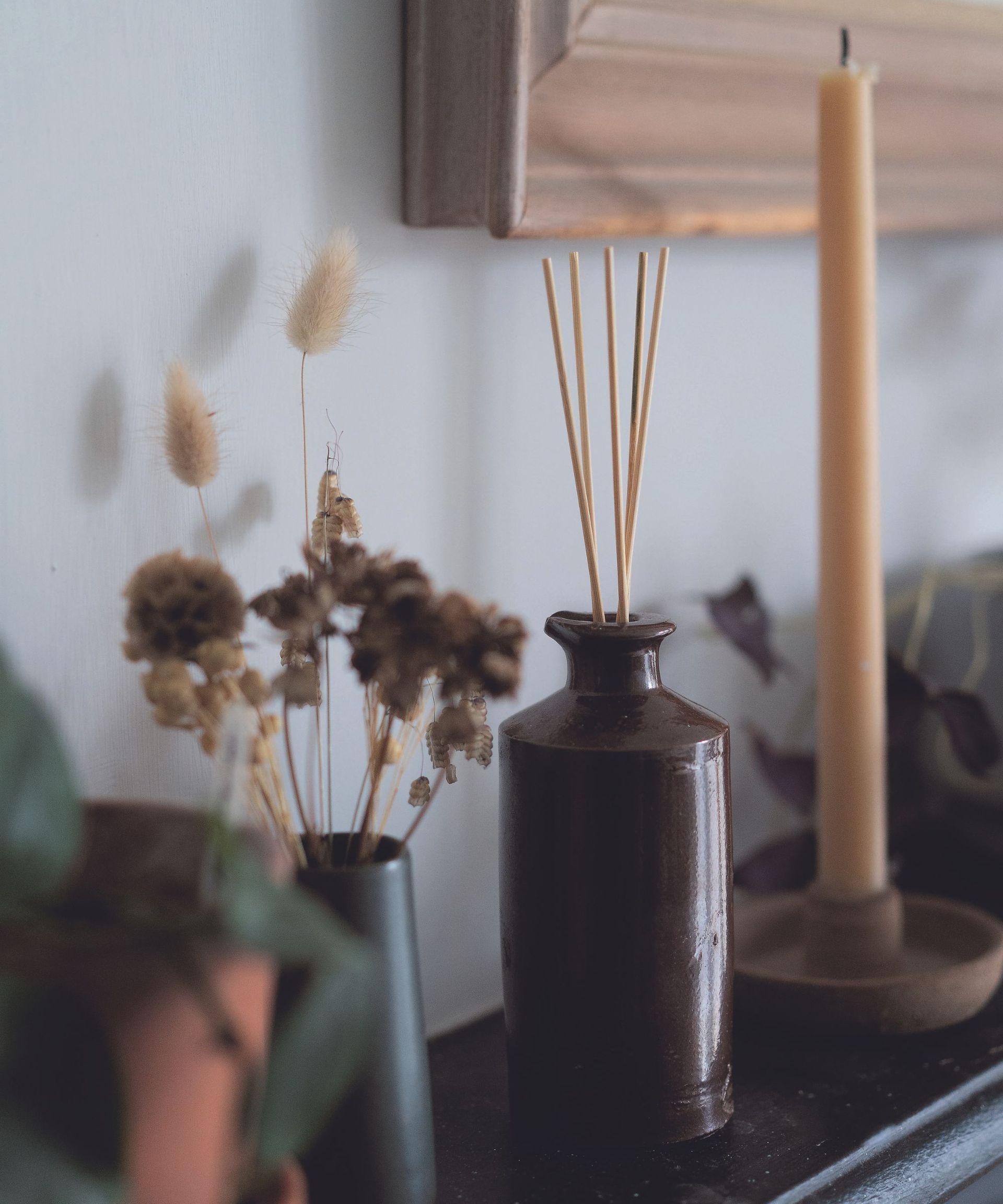
When faced with a bad smell in the home, many people's first step is to light a candle. However, this can do more harm than good. 'Despite their pleasant aromas, many scented candles contain toxins, particularly paraffin, which are damaging to our health, especially if you suffer from respiratory issues such as asthma,' says Sue Caldwell, from Clean Living International (opens in new tab). Instead, opt for natural candles made from soy wax and essential oils.
'Sense of smell is part of the limbic system which processes emotion, supports memory formation, and is strongly linked to your emotional well-being. Read product labels and look for naturally derived scents and cotton wicks in non-paraffin candles to keep your home toxins to a minimum,' advises Kristin Bartone owned owner and principal designer at Bartone Interiors. You can even make a DIY reed diffuser for a cost-effective way to make your home smell nice.
If you are unsure how to find the best home fragrance, start by looking at your favorite perfume. Discover what notes you are drawn to – whether that's floral, citrus, or musk – knowing this will help to guide you toward a home fragrance you're sure to love.
2. Make your own linen spray
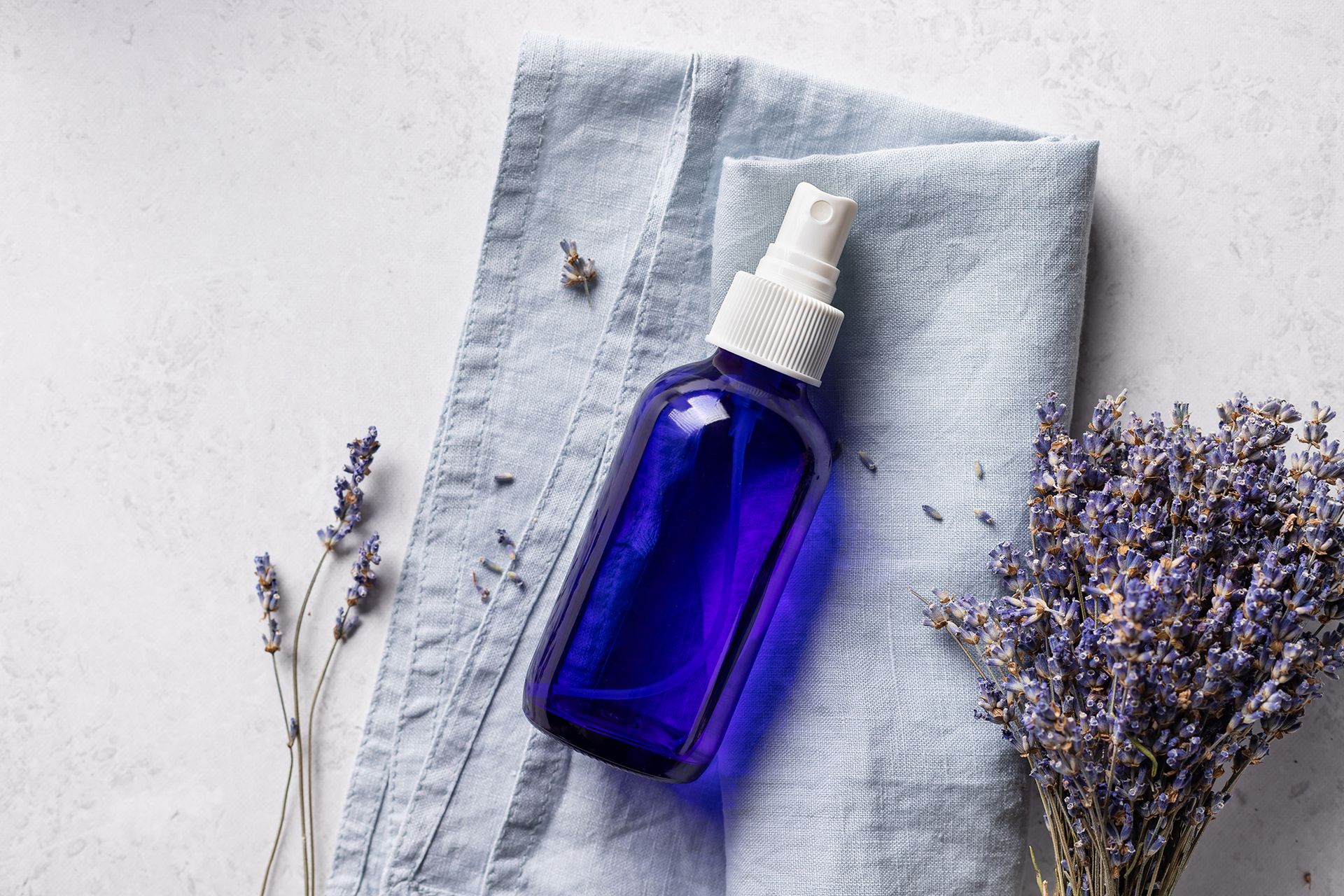
Filling your home with fresh linens is a great way to make your home smell nice. To retain that ‘just washed’ smell in your bedlinen, linen water is a must. To make linen water: mix 2 tbsp vodka with 2/3 cup of distilled water. Then add 12 to 18 drops of your chosen essential oil – lavender or neroli are great choices – and decant into a spray bottle. You can then spray a little linen water over the garment while ironing or use the linen water to reinvigorate fresh sheets out of the cupboard.
3. Fill your home with herbs
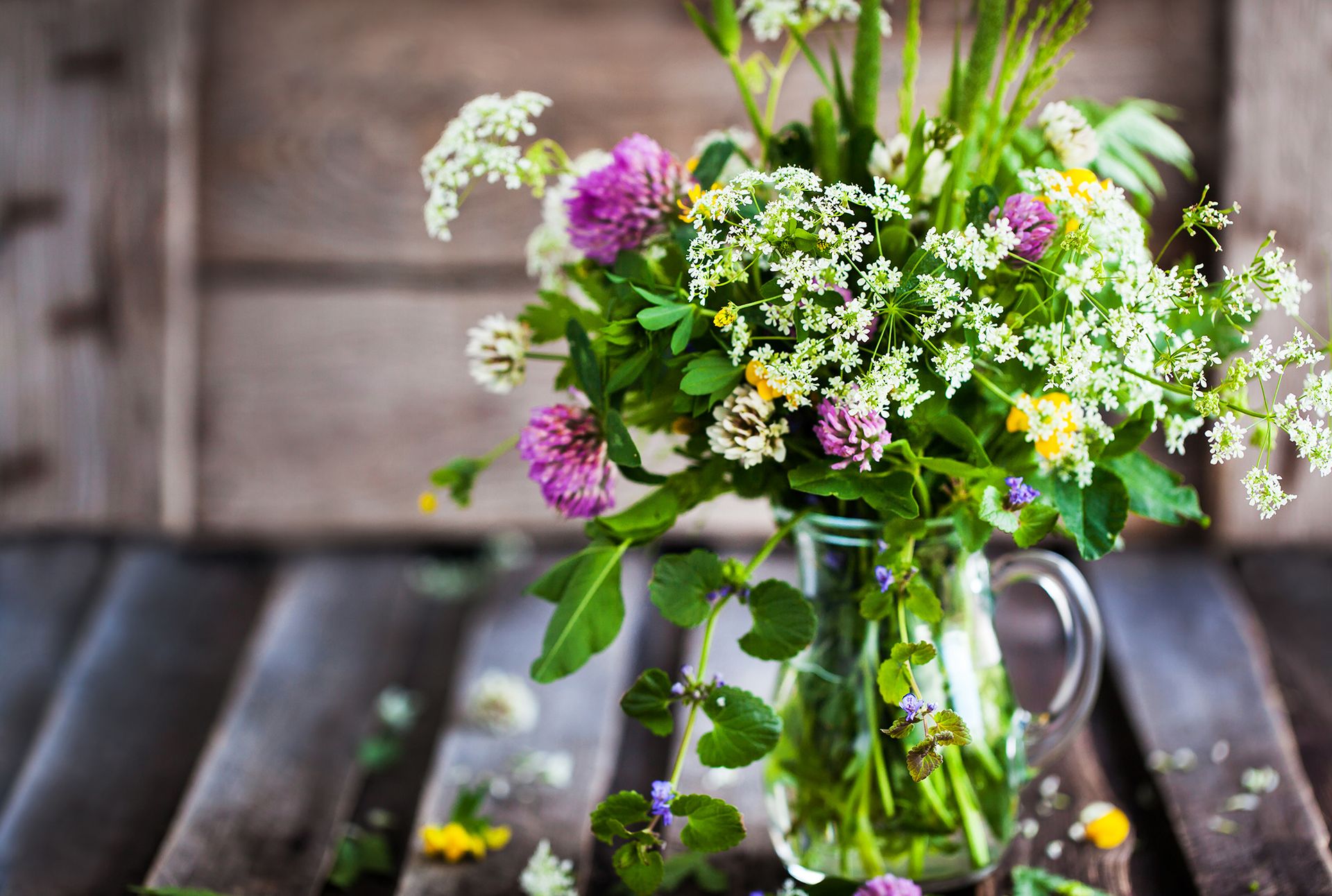
It can be hard to make a kitchen smell nice as you will be battling the cooking odors while also needing to avoid floral or perfumed scents that might interfere with the taste of your food. Fresh herbs offer the solution.
‘As a chef, I don’t just cook with ingredients — I use them in my home! One of my favorite things to do is to fill vases with fresh herbs. A vase of rosemary, sage, or mint is both practical as well as beautiful. It’s especially easy if you have an herb garden or container garden, but can be easily and inexpensively accomplished with store-bought herbs, too. A simple brush with your hand will release the essential oils, leaving an herbaceous aroma,’ suggests chef and award-winning cookbook author Virginia Willis (opens in new tab).
You can even try growing herbs indoors – not only will this give your kitchen a beautiful fragrance but the plant's oxygen-producing qualities will also help to mitigate bad odors.
4. Deodorise your kitchen after cooking
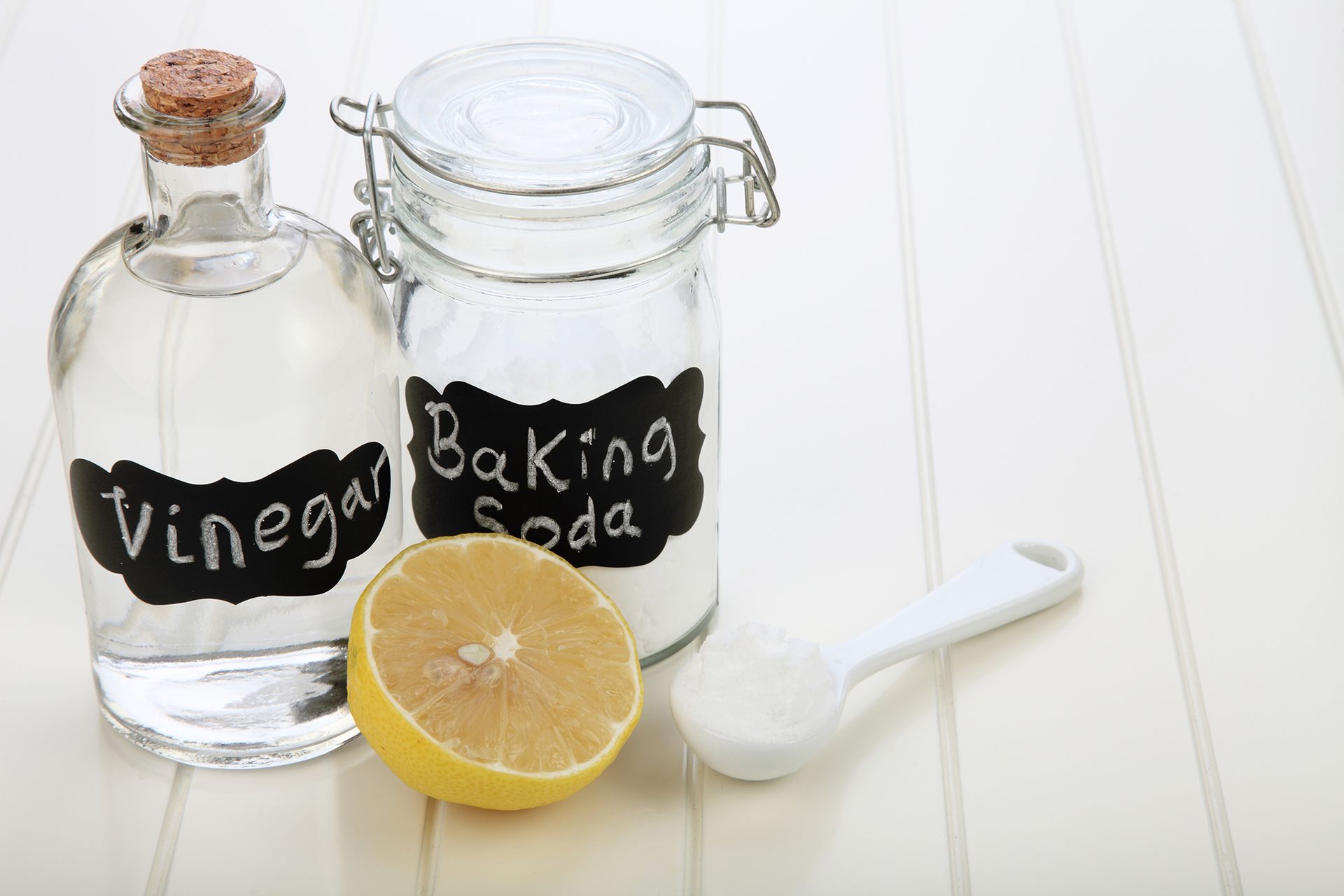
Despite your best efforts, certain smells, such as fish, garlic, and onion, will permeate a room. Thankfully, there are some quick and easy hacks to target these specific odors and get your kitchen smelling as good as it looks.
For fish odors, set a bowl of white vinegar in your kitchen overnight – the acetic acid will deodorize the room.
For garlic and onion smells, freshly brewed coffee is a great solution.
Baking soda is also known for its deodorizing properties – store an open tub of baking soda in the fridge to keep those food smells to a minimum.
‘If your microwave is a bit smelly, you can keep it fresh between cleans by simply filling a glass bowl with water and squeezing half a lemon or orange inside. Pop it in for a minute or so for a scented steam that will leave it beautifully fragranced!’ advises Sue Caldwell, from Clean Living International (opens in new tab).
5. Don't forget to clean your kitchen's lightbulbs
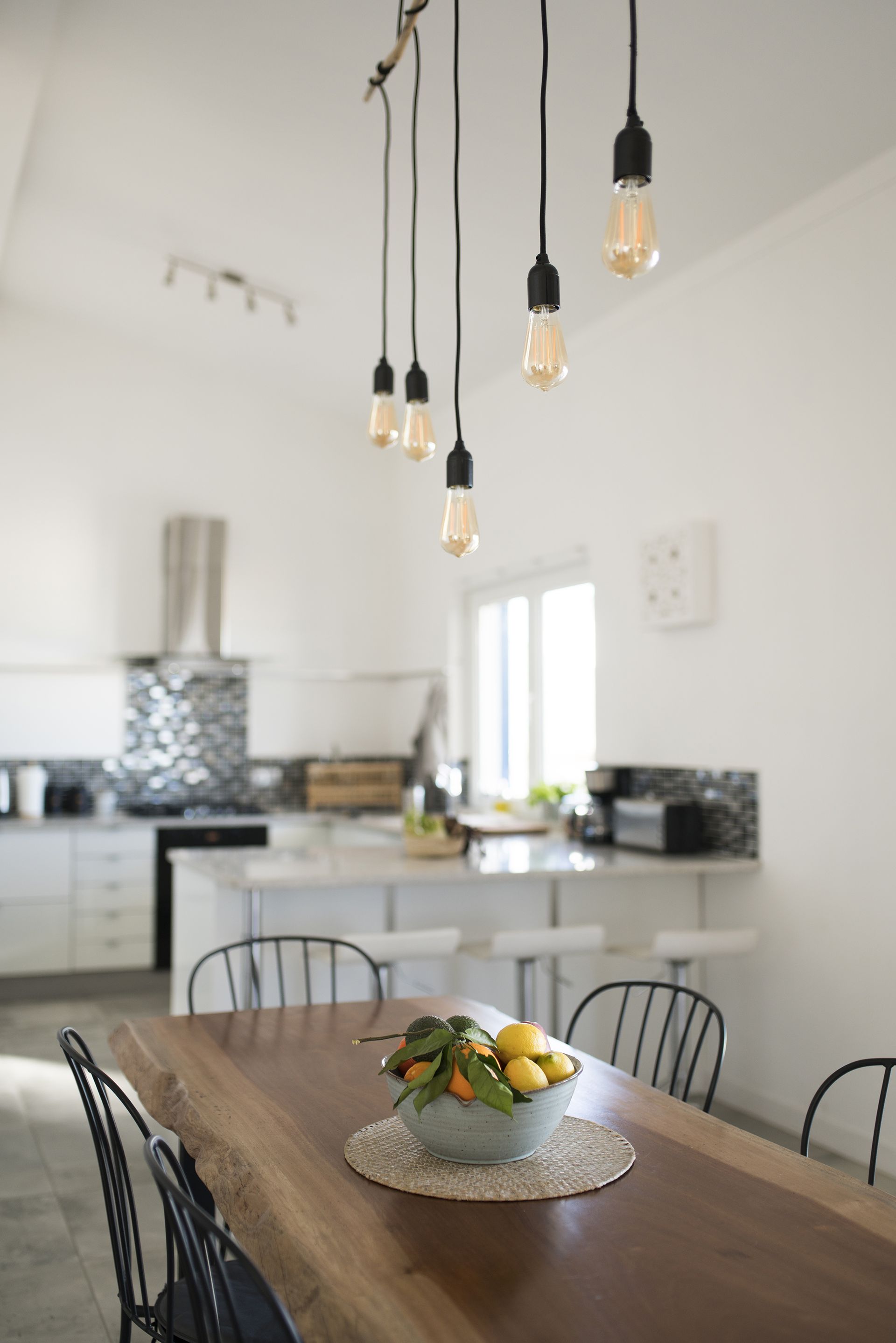
Grease and grime is an occupational hazard in the kitchen, and for the most part, it is remedied by cleaning. However, when was the last time you cleaned your lightbulbs? Like any other surface in the kitchen, lightbulbs will attract grease. However, unlike your worktops, your lightbulbs also heat up – leading to the cooking smells continuing to permeate throughout the room. When carrying out your regular cleaning, be sure to give your bulbs a quick wipe to remove grease and keep the space smelling fresh.
6. Use soap to keep your boot room or shoe cupboard smelling fresh
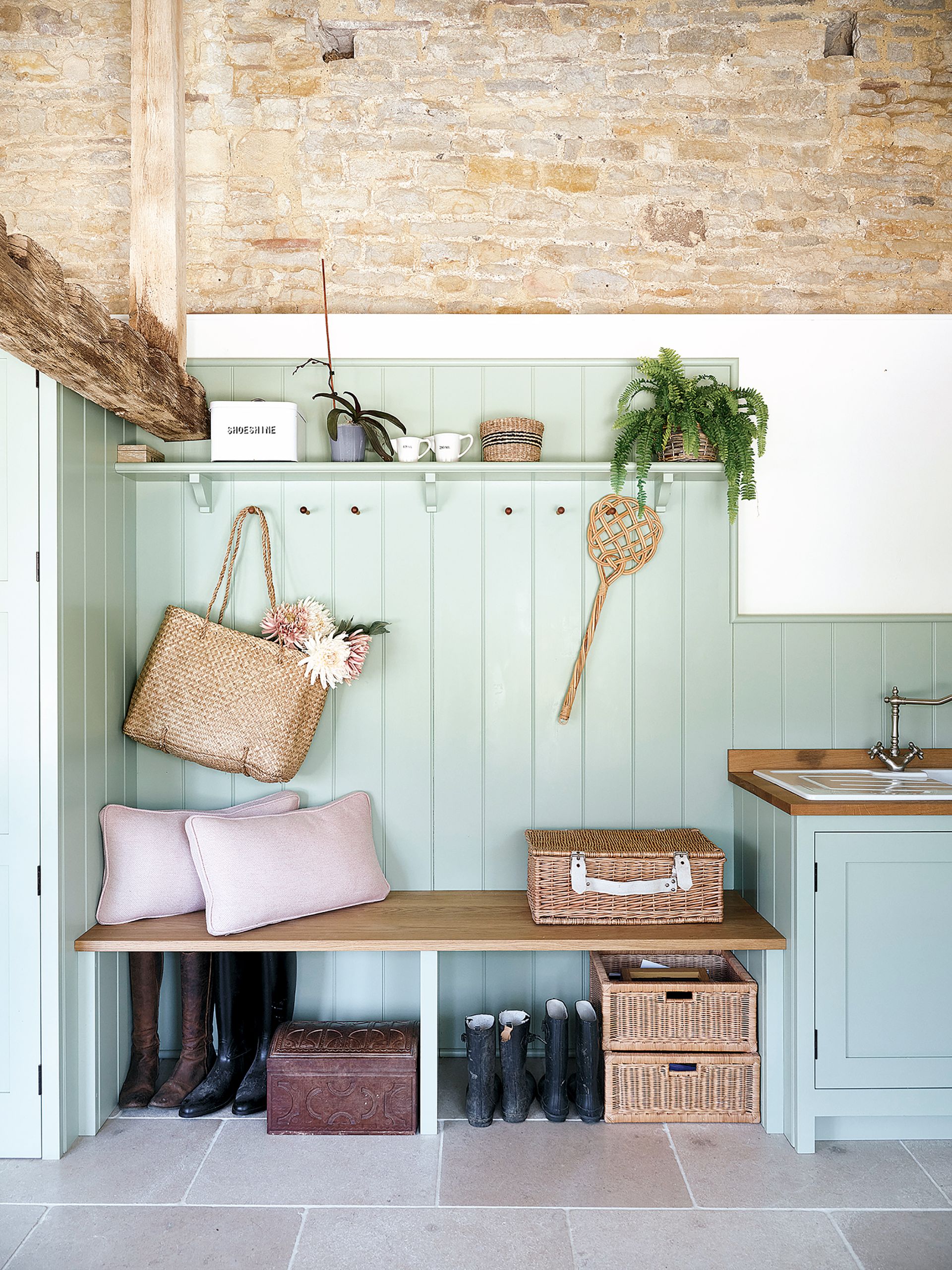
Your boot room (or shoe cupboard) is likely to be one of the more pungent spaces of your home – and a diffuser or scented candle is unlikely to do much to help. Instead, tackle the source of the odor. Experts at Nike recommend ‘dropping a bar of soap into each shoe and leave it overnight. Soap kills bacteria and the smell they produce. Plus, soap is porous, so it’ll absorb the smell and replace it with a clean, soapy scent.’ If trying this method, ensure that the soap is dry before use.
Alternatively, try this clever hack about storing broken bath bombs in your shoes to revolutionize your shoe storage ideas.
7. Create a carpet deodorizer
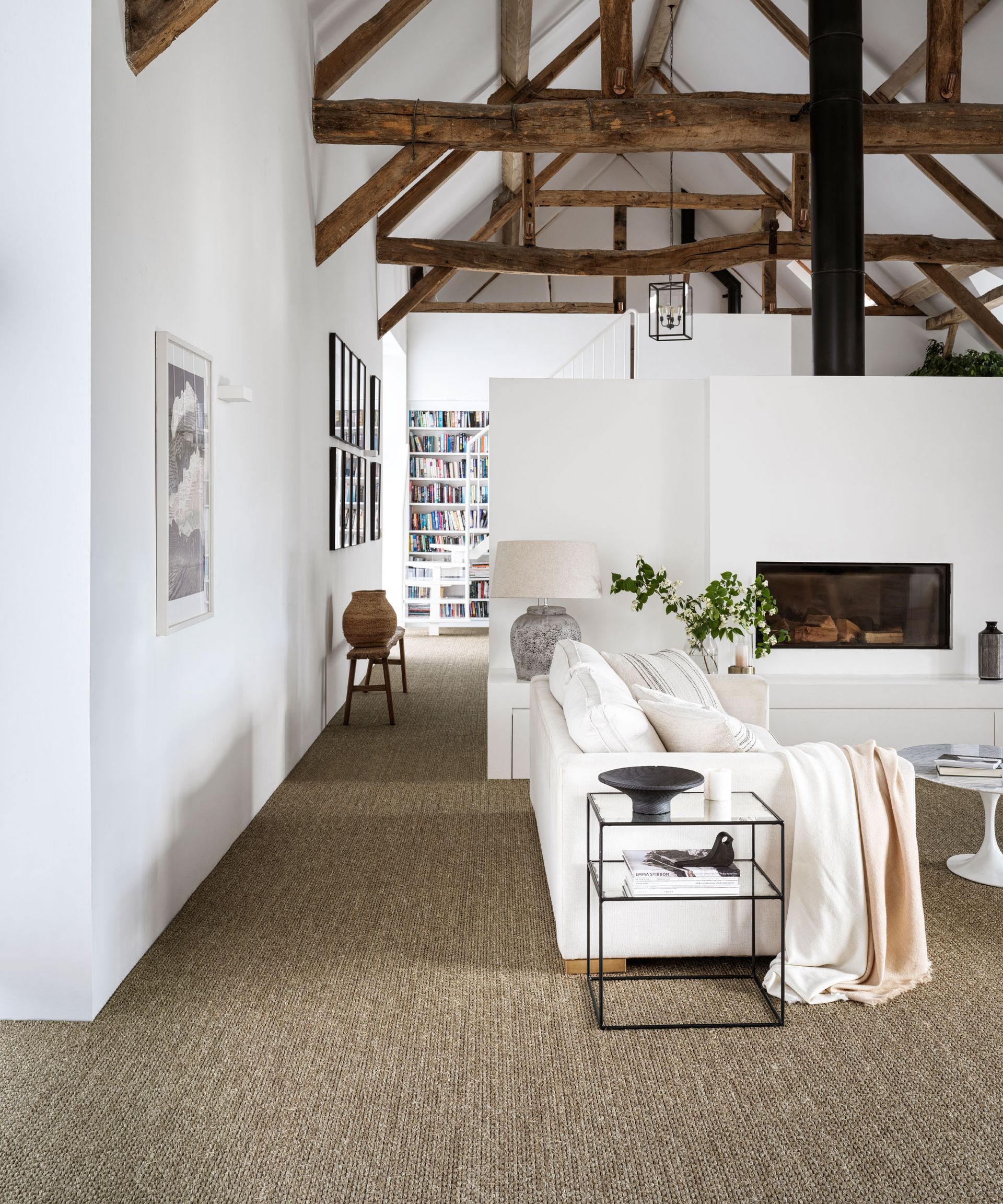
Deep cleaning a carpet is one of the most difficult cleaning tasks – however, QVC host and cleaning expert Jill Bauer (opens in new tab) has an excellent DIY cleaning tip to deodorize your carpet and make your home smell nice.
'Making the mixture is actually pretty simple—just add 1-2 cups of baking soda and anywhere from 10 to 20 drops of essential oils to a bowl and combine the ingredients thoroughly with a fork. Funnel your mixture into a shaker, or create a DIY shaker by purchasing a mason jar and poking holes in the metal top with a nail. Sprinkle the DIY deodorizer sparingly on your carpet, vacuum as you normally would, and you'll have fresh-smelling carpet in minutes!'
To give your carpet a refreshing fragrance you can also try this laundry pearl trick for rugs and carpets – it will leave any space looking and smelling as clean as fresh laundry.
8. Invest In a HEPA Air Purifier
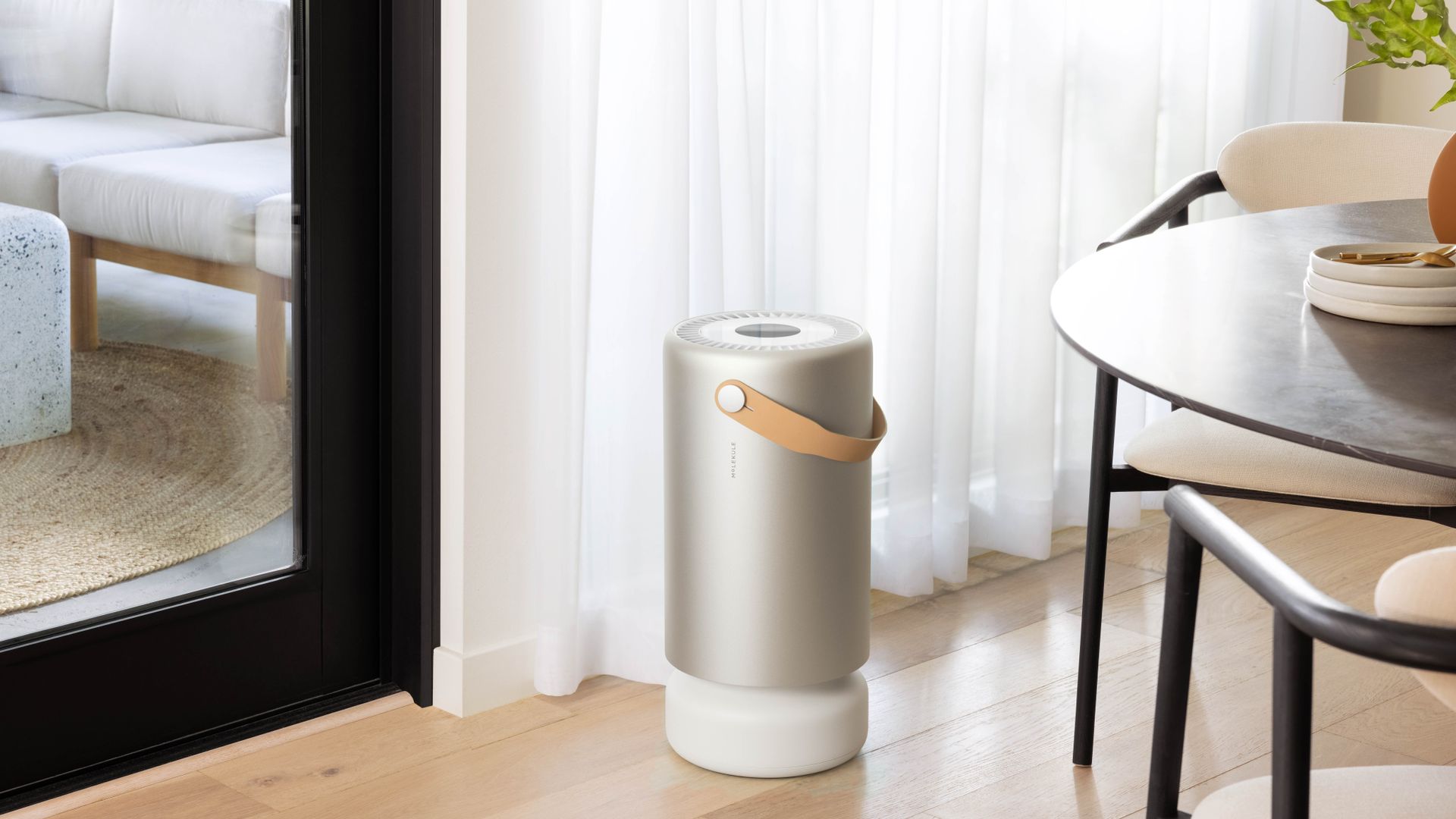
If you're looking for a quick and efficient way to make your home smell nice then an air purifier will be the perfect solution.
'A beautiful home is incomplete without clean air. Make your home fresh by investing in a HEPA-filter air purifier to eliminate unwanted odors indoors and breathe clean air. This appliance traps and reduces the air particulates, like dust and pollen, that can harm health, especially the respiratory system,' explains Robert Johnson from Coast Appliances (opens in new tab).
'Choose the appropriate size of HEPA air purifier for your needs by considering your room’s square footage. The best air purifiers can filter formaldehyde and active carbon, which can cause adverse health effects. Avoid ozone-producing air purifiers, such as ionizing and UV-C light air purifiers, because they can harm health and damage electronic and plumbing systems.'
This Dreo Macro Pro Air Purifier from Amazon (opens in new tab) is one of our favorites – you can see the full review here.
9. Don't overlook bedroom fragrance
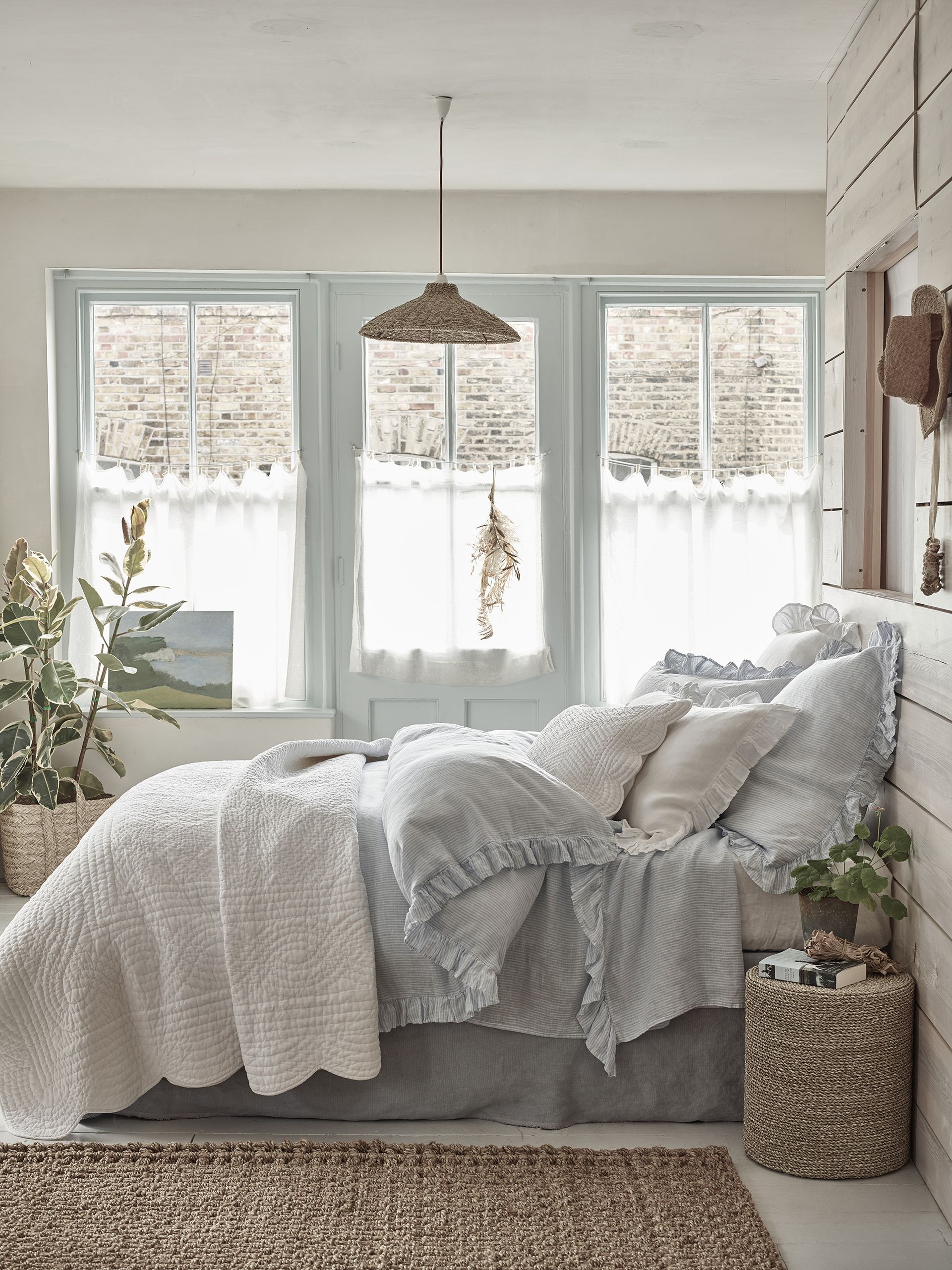
Of course, there are lots of obvious ways to make your bedroom smell nice – candles, reed diffusers and drawer liners all work well, however, there are more influential steps you can take to transform your bedroom into the sanctuary of your dreams. Deodorising is a must, open the windows each morning to let out the stale air and let in the fresh – even in winter, it needn’t be for long.
Next air your bed. Instead of making your bed as soon as you wake up, pull back the covers, remove blankets and hang them on the line or airer, and separate and plump your pillows. Leave like this for half an hour or so, before making the bed. You can even apply a few sprays of linen spray when you come to make the bed to reinvigorate your sheets.
Once you have achieved these steps, you have a neutral base against which you can add fragrance. ‘A bedroom should smell lovely too, scent diffusers are fantastic for this as you can easily control the scent level by adjusting how many reeds you use. A lovely relaxing scent such as lavender will make the room feel instantly more restful as does the soft flicker of a scented candle,’ advises Chrissie Rucker, founder of The White Company (opens in new tab).
What can I buy to make room smell nice?
If you want to buy one thing to make your room smell nice, then bicarbonate of soda is a must. Our favorite deodorizer, bicarbonate of soda can be used to remove bad smells in any room, can also be used on furniture and upholstery, and is a great way to clean a mattress to remove unwanted odors.
Once you have a neutral base, you can add candles and diffusers made with essential oils to make your home smell nice.
How do realtors make house smell good?
Baking cookies are the most famous way that realtors make a house smell good. This is because it is a great way to make your home smell nice filling it with the sweet vanillary scents that instantly make a house feel like a home.
'Usually, I bake cookies or simmer spices in water on the stovetop because, as a real estate agent, I am aware of the importance of calming aromas in assisting with home sales. You can accomplish the same thing at home using your preferred herbs and spices, and I guarantee it will work,' explains realtor Shaun Martin (opens in new tab).

Having graduated with a first class degree in English Literature, Holly started her career as a features writer and sub-editor at Period Living magazine, Homes & Gardens' sister title. Working on Period Living brought with it insight into the complexities of owning and caring for period homes, from interior decorating through to choosing the right windows and the challenges of extending. This has led to a passion for traditional interiors, particularly the country-look. Writing for the Homes & Gardens website as a content editor, alongside regular features for Period Living and Country Homes & Interiors magazines, has enabled her to broaden her writing to incorporate her interests in gardening, wildlife and nature.
-
-
 How to organize a sock drawer – 10 ways to sort socks in style
How to organize a sock drawer – 10 ways to sort socks in styleLearn how to organize a sock drawer so you find your perfect match every time
By Tara King • Published
-
 11 space-saving organizing tips professional use in every small living room
11 space-saving organizing tips professional use in every small living roomThese space-saving tips will free up functional space in any small living room
By Chiana Dickson • Published
